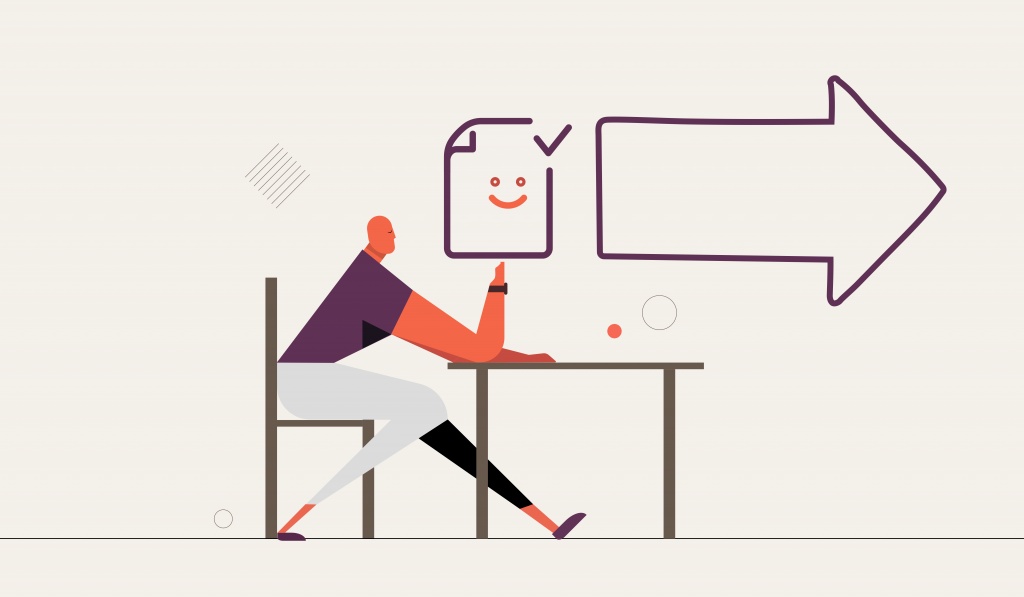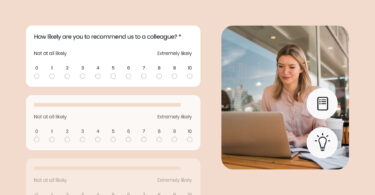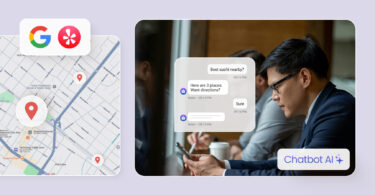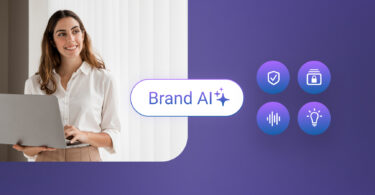I think that if healthcare providers had insight into their patients’ experiences, things would be so different. What’s a low-risk way to gather patient feedback, you ask? Anonymous surveys. I have been thinking about anonymous surveys and why people don’t use them enough since my visit to the dentist last week.
Everyone dreads going to the dentist and so do I. In addition to the painful treatment you go through on the chair (I mean, have you ever had a root canal treatment done?), the anxiety of waiting always gets to me. However, the one good thing about going to my dentist was that they had a small but good collection of manga in their waiting room. I’d settle with a comic and soon even forget that I was at the dentist’s office.
During my last week’s visit, much to my horror, I found that the little manga section has been removed. When I checked with the front desk attendant, he said that the manga was let go of in a bid to get more professional. How sad! I didn’t care about the health magazines they had, which meant that I sat in silence worrying about what happens next. I didn’t think the manga was unprofessional and neither did the other two patients I was waiting with. Now my dentist was also just like the others, and I was sorely (pun intended) disappointed.
All this could’ve been avoided if they sent out surveys to their patients. Something quick and to the point that would make my patient experience better — where do I sign up? It has been reported that 40% of patients feel rushed, so sending a survey to get their feedback is always a good idea.
Healthcare providers need to make a lot of decisions and most of their decisions affect patients’ experience. Using surveys will help healthcare providers understand what is working and what should change.
When Should You Choose Anonymous Surveys?
Anonymous surveys are great for when people don’t want to disclose their identities. Think about the questions you are asking. Are they personal or intimate in nature? For example, for a medical practice, most questions related to a patient’s experience tend to be personal. Your patients wouldn’t feel too comfortable telling you how anxious they were before they came in for a visit or how pleased they were with the facilities provided if they knew you’d have their details. Or best case scenario, they wouldn’t be 100% truthful because no one really wants to upset their doctor.
For all these reasons, anonymous surveys are a great option. Your patients have their voice and are no longer stressed about who is reading these surveys.
However, if you are looking to follow up with the survey respondents, anonymous surveys aren’t much help. Consider this: you sent out an anonymous survey to all your patients, asking them how they felt about the medical practice’s post-operative care. 97% of your patients said it ranged from good to very good, but 3% said that it was terrible. If you want to be able to follow up with whoever had a terrible experience, you wouldn’t be able to get that information with anonymous surveys.
In cases like these open surveys or confidential surveys might be the best way to go. You can and should always assure your patients’ that you are only looking to improve your services and that you will treat their information with the utmost respect.
Advantages Of An Anonymous Survey
Here’s how anonymous surveys can benefit your practice.
- Higher Response Rates: Across fields, anonymous surveys have a higher rate of response. Putting down your name next to something is the same thing as saying it to their face. With anonymity, patients feel more secure answering questions or giving opinions.
- More Accurate Data: People show more empathy or present a false show of appreciation when their data is collected. Your patients are more likely to sugar-coat their opinions if they know you are reading it as their opinion. Avoid falling down this trap by taking the anonymous survey route.
- Increased Trustworthiness: Collecting information anonymously is the mark of someone who really wants to know the truth. If you send out anonymous surveys about your medical practice’s reception music, your patients will know that you are really serious about knowing how happy they are with the music choices.
- Patients Feel More Involved: When patients give feedback and you turn it into actionable items, you are sending them a message, loud and clear. You are telling them that you are listening carefully to everything they are saying and that you are open to criticism. This makes customers feel more involved with the practice, which means more positive reviews and increased online reputation.
Tips To Build An Anonymous Survey
Want to start building anonymous surveys? Here are a few tips to help you get started.
- Keep it short. These types of surveys work best when the respondent doesn’t need to go into the details. If you ask your patients a detailed account of their experience, it’s hardly going to stay anonymous. If a survey claims to be anonymous but one of the questions is pointedly asking me to describe big parts of my visit (procedure, doctor, date, time, my designation and company name — these details can be easily matched with me) — I would be hesitant and I know I’m not alone. Truly anonymous surveys are short and to the point.
- Don’t use custom data. When someone takes a survey via text or email, their custom data (like name and email) are shown along with their answers. Kinda beats the point of anonymity, don’t you think? Make sure you aren’t using the custom data feature while creating and sending the survey.
- Don’t use custom variables. Put simply, custom variables are a feature to help track data about your survey takers. Avoid using custom variables while sending out anonymous surveys.
- Give them the important stuff early. Your patients aren’t going to scroll to the end of the survey to check if it’s anonymous. Likewise, patients are less likely to take a survey if they don’t understand what it’s about. Consider this: “Hey, we are hoping to revamp our practice’s appointment system and we want to know what currently works for you. Don’t worry, it’s all anonymous.” A simple statement like this can get you more success with your anonymous survey.
- Meet your customers where they are. Whether a patient pings you on Facebook Messenger or on text or sends you an email (claps for the traditional email users), you need to send surveys via the same channel. If you email a patient who contacted you via chat, chances are that you won’t have a recall value and the survey email goes unanswered.
How To Get The Most From Surveys
So you just sent out surveys to understand how happy your patients are with their overall experience. That’s great. But, this doesn’t mean that you don’t do anything more for the next few months. A good medical practice that cares about its patients will always work on improving its services. It’s not a one-time thing.
So, when can you send surveys?
- After a visit. You can automate the process so that every patient receives a short, anonymous survey after their visit. It might be a smart move to give them some heads up as you show them out. Even a “Hey, look out for our survey” will make them want to respond more. Also, use your surveys to ask for more reviews (those Google reviews and Facebook reviews pages aren’t going to fill themselves).
- Ask new patients. New patients are a great way to get some fresh perspective. Automate the process so that every patient receives a survey soon after a visit. It’s recommended to send surveys soon after the patient’s visit for better recall and responses.
- Set Goals. You might want to consider sending your patients surveys quarterly or half-yearly to get feedback. While sending a survey only once or twice a year might not get you enough actionable insight into your practice, it might be helpful to do this in addition to other patient surveys.
- Before or after improvement projects. If you have a new system in place or have just made renovations and want to know how your patients feel about it, a survey might be just what the doctor ordered.
How Can Birdeye Help?
We are glad you asked. With Birdeye you can send out a variety of surveys (yes, anonymous ones too) automatically — everything from a single dashboard. Send anonymous surveys to all your patients via their preferred mode of communication. Birdeye supports SMS, email and social media too. Birdeye will help you close the loop on feedback, which means that if you get alarming survey results you will be able to take action.
Another cool thing that Birdeye helps you do is to really investigate your survey responses. If you have a bunch of survey responses but you don’t know what to do with them, do not worry.
Get Birdeye Surveys and transform your process of receiving and understanding patient feedback. Want to know more about surveys and what you can do with it? Watch the free demo.
Originally published






![[Feature image] The best AI tools for business in 2025 A complete guide for productivity, content, and growth](https://birdeye.com/blog/wp-content/uploads/Feature-image-The-best-AI-tools-for-business-in-2025-A-complete-guide-for-productivity-content-and-growth-375x195.jpg)


